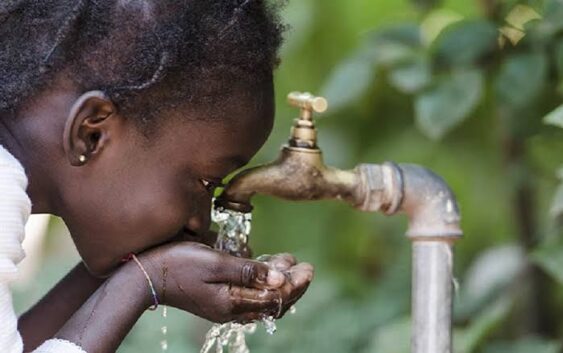- HOW TEMANE-MAPUTO ELECTRICITY TRANSMISSION LINE PROJECT IS GOING THROUGH TEST IN MOZAMBIQUE
- NEWLY OPENED PLASTIC RECYCLING PLANT SET TO HELP COMBAT NAMIBIA's PLASTIC INDUSTRY
- PROGRESS MADE ON PIIM PROJECTS AS OVER 85% COMPLETED IN ANGOLA
- WORLD BANK KICK-OFF INSPECTION OF USMID PROGRAM IN UGANDA
- ALGERIA MINISTER RECIEVED HARBOR ENERGY CEO OVER ENERGY PARTNERSHIP
ETHIOPIA ENERGY MINISTER SAY IMPLEMENTATION OF USD523M WATER PROJECT ON COURSE

The Ministry of Water and Energy (MoWE) said it has been implementing a 523- million- USD project to improve access to water and sanitation services in 23 cities across the country.
MoWE Sanitation Infrastructure Lead Executive Officer Nuredin Mohamed said that the ministry has been employing the Second Urban Water Supply and Sanitation project to increase access to basic water supply and sanitation services. The project also helps to improve operational efficiency of water and sanitation utilities in 23 cities.
Regarding the finances, the officer noted that the World Bank Group allotted over 460 million USD while the balance is secured from other donors.
The ministry has conducted the research that is necessary to translate the project into reality and purchased and distributed different materials to regional states. Now most of the preparation activities have been finalized and the remaining task is the construction of the treatment plant especially for sanitation services. “Now, we are launching the construction.”
Nuredin indicated the project would enable the ministry to expand infrastructure, strengthen capacity building and support post construction. Various projects are underway with the support of the government and development partners and they are in different levels of execution.
As part of improving the sanitation services, 1000 public toilets are under construction across the country.
The officer further highlighted the ministry’s focus to resume water and sanitation services and infrastructure projects in Tigray state, which were severely damaged by the conflict. While the ministry purchased electro mechanical devices worth one million USD to resume the service in Mekelle, it has made a similar attempt to Adigrat.
The accomplishment of these activities would give a huge relief for residents and these two cities are part of the Second Urban Water Supply and Sanitation project and beneficiary of post-construction activities.
Emergency approaches such as resource mobilization, infrastructure reparation and service resumption have addressed timely problems in different areas. Moreover, it has been focusing on sustainable solutions in areas affected by the recurrent drought and other natural challenges, he remarked.

